Author Archives: Grant Gross
Author Archives: Grant Gross
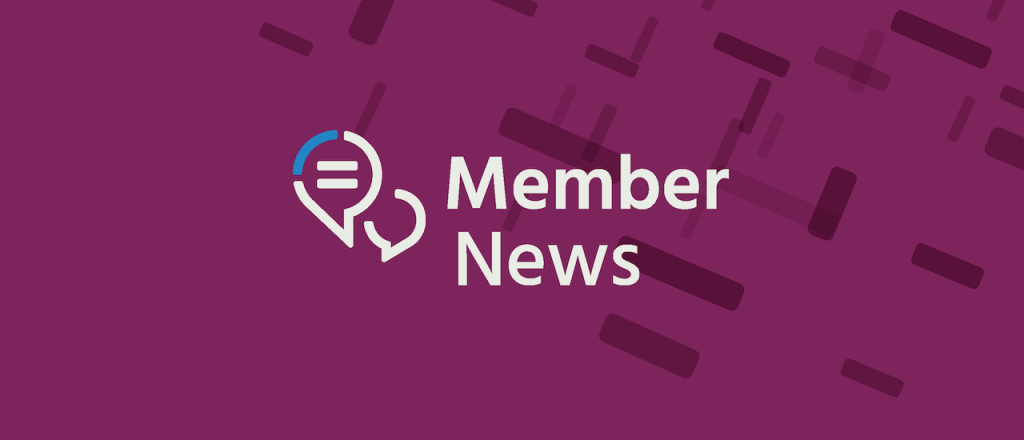
Connecting the people: The San Francisco Chapter recently received a Beyond the Net Grant from the Internet Society Foundation and will use it to help bring high-quality Internet service to more than 9,000 Native Americans in in a remote area of southern California. The grant will be used to extend wireless service about seven miles further into tribal lands.
Campaign against disinformation: The Netherlands Chapter is working with the artificial intelligence-powered KRINO Project to fight fake news online. KRINO will be able to analyze online content, including political statements, social media posts, and even medical information, but with humans reviewing its recommendations. The AI-based tool is in development, and the chapter’s Make Media Great Again Working Group will help fine tune the tool.
How the Internet works: Recently, two Internet Society chapters have hosted Internet-related training programs for members of the community. The Mali Chapter hosted the first edition of the Mali School of Internet Governance, with 46 people, including lawyers, engineers, law enforcement officers, and students, participating. The goal of the training is to give participants the knowledge and confidence to participate effectively in Internet governance processes and debates at regional, national, and international levels.
Digital literacy: The Panama Chapter Continue reading
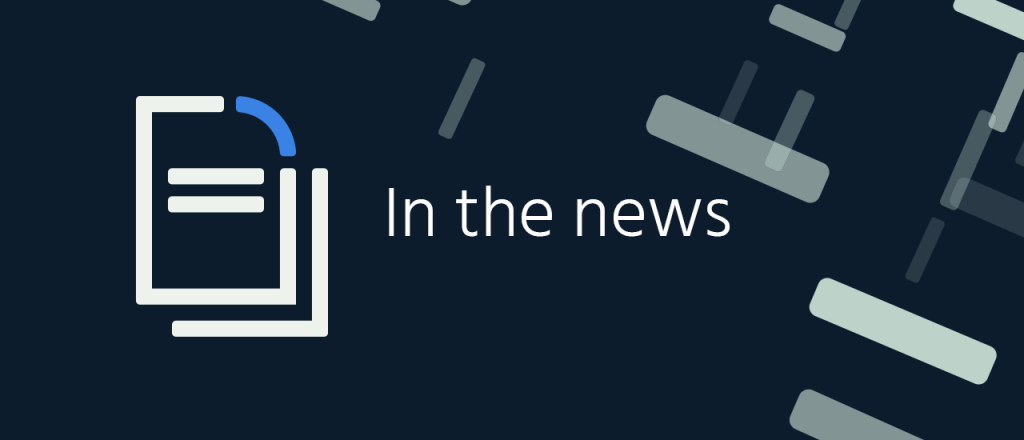
Another game of monopoly: Attorneys general from 38 U.S. states and territories have filed an antitrust lawsuit against Google, just days after 46 states and the U.S. Federal Trade Commission filed antitrust lawsuits against Facebook. The new lawsuit against Google is the third recent antitrust action against the company in recent weeks, CNet says. Ten states previously filed a lawsuit related to Google’s ad auctions, and the U.S. Department of Justice previously filed a lawsuit on Google’s browser deals with smartphone makers. The newest lawsuit targets Google’s search functionality, saying it delivered results that favored its own products over those of competitors.
Order from chaos: Meanwhile, the European Commission is threatening new regulation of big tech firms with rules to aim to “curb the hegemony of dominant multinationals and force them to be more transparent about how content is ranked, advertised and removed,” Euronews reports. Part of the goal is to allow European businesses to “freely and fairly compete online just as they do offline,” said Margrethe Vestager, executive vice president for a Europe Fit for the Digital Age.
The perimeter is breached: Hackers have gotten into the IT systems of several U.S. government agencies and Continue reading
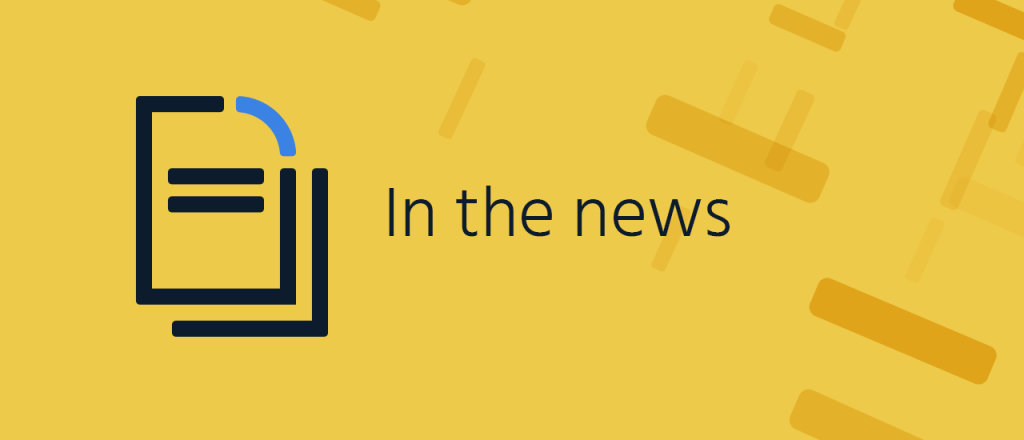
Do not pass go: The U.S. Federal Trade Commission and attorneys general from 46 states have filed antitrust lawsuits, charging the social media giant Facebook of expanding its monopoly position by acquiring potential rivals including WhatsApp and Instagram, The Hill reports. It’s possible that Facebook would be required to sell off those acquisitions. Facebook has noted that both acquisitions were approved by regulators at the time.
Get off my phone: The government of China has ordered several apps, including one from TripAdvisor, to overhaul their products in an alleged crackdown on pornography and other “improper” content, The Associated Press says. In the meantime, China’s National Cyberspace Administration ordered the removal of 105 apps including TripAdvisor from app stores. The agency said there were public complaints about obscene, pornographic, and violent information as well as fraud, gambling, and prostitution.
Cookie spies: The government of France’s data privacy agency has fined Google US$121 million and Amazon $42 million for breaking the country’s rules on tracking cookies, Reuters says. The Google fine was the largest ever from the French Commission Nationale de l’Informatique et des Libertés. The CNIL said the companies’ French websites didn’t seek the prior consent of visitors before advertising Continue reading

Homework canyon: Two-thirds of the school children across the globe don’t have Internet access, according to a new report, India Today says. The report from the United Nations Children’s Fund and the International Telecommunication Union says the lack of access is a major problem during the COVID-19 pandemic. “That so many children and young people have no internet at home is more than a digital gap, it is a digital canyon,” said UNICEF Chief Henrietta Fore. “Lacking connectivity prevents young people from competing in the modern economy.”
A quantum breakthrough: A Chinese research team has built a quantum computer capable of performing computations nearly 100 trillion times faster than the world’s most powerful supercomputer, The Independent reports. The Chinese feat comes about a year after a Google team passed the same milestone, although the Chinese quantum computer uses a different setup than Google’s.
Research by smartphone: Smartphone users in 17 countries, including the U.K., Australia, South Africa, and Germany, are donating excess smartphone computing time to the DreamLab app, which uses the computing power to research treatment for people suffering from long-term COVID-19 effects. The study is being run by Imperial College London and the Vodafone Foundation charity, Continue reading

A virtual gap: Homeless advocates and legal groups have sued New York City for a lack of reliable Internet access in the city’s 27 homeless shelters, Reuters on WTVBam.com reports. Thousands of students living in the homeless shelters are struggling to keep up with virtual school during the COVID-19 pandemic, the plaintiffs say. The city has promised to install WiFi service in the shelters. New York City recently returned to virtual school after COVID-19 rates ticked up.
Repair it yourself: The European Parliament has voted to make it easier to repair electronic devices outside of the company that sold them, Euronews.com says. The legislation would allow independent repairs without hurting the value of the device during trade in, a move that’s a “major blow” to big device makers.
Device spying: The Singapore-based developer of smartphone application Muslim Pro, targeted at Muslim users, has denied allegations that it is selling the personal data to the U.S. military, The Straits Times reports. Developer Bitsmedia says it is immediately ending relationships with its data partners, however. Vice.com recently reported that the app was among several selling personal data to the U.S. military.
Facebook fined: The South Korean government Continue reading

Great heights: As his classes move online, Russian student Alexei Dudoladov has to climb a birch tree to get Internet access, Reuters reports. The student at the Omsk Institute of Water Transport, which is nearly 1,400 miles east of Moscow, says his home Internet service is not strong enough to connect to online classes. “I need to go into the forest 300 meters from the village and climb a birch tree that is eight-meters high … and I get on Zoom to speak to professors and prove that I am not skipping class for no reason.”
Even greater heights: Meanwhile, the Ector County Independent School District in Odessa, Texas, is hoping that the new SpaceX satellite Internet service will help give students and teachers better Internet access, Education Dive says. The district is the first in the U.S. to work with SpaceX’s Starlink Internet service. A pilot project in early 2021 will include 45 families with students or teachers in the district.
Cybersecurity boss fired: U.S. President Donald Trump, who continues to insist he was the victim of massive nationwide voting fraud in his recent election loss to Joe Biden, has fired Christopher Krebs, who led the federal Continue reading
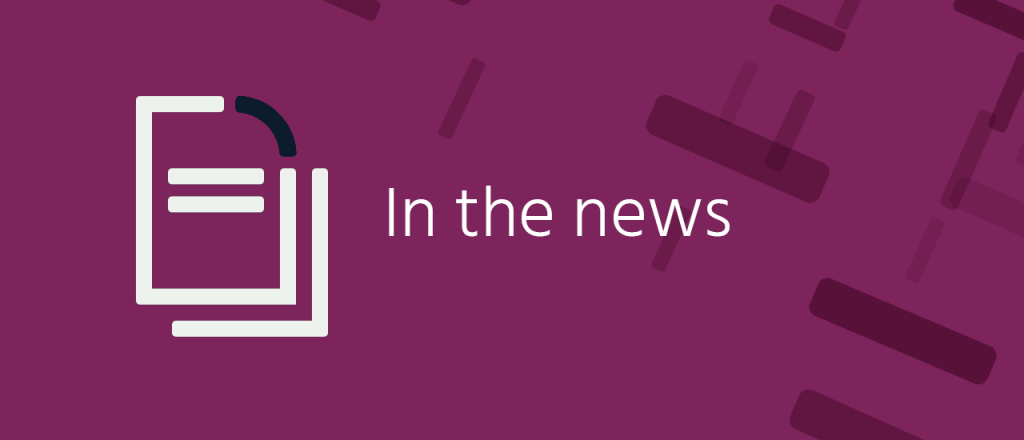
Winds of change: U.S. President-elect Joe Biden will significantly change U.S. government policy focused on the Internet, Vox.com says. A Biden administration is likely to bring back net neutrality rules and push for policies that widen Internet access and make it more affordable. The Biden team may also provide more subsidies to lower-income people and open up more radio frequency bands for high-speed 5G networks.
Accessing growth: The growth of Indonesia’s digital economy depends on equal access to the Internet, but 12,000 villages across the country still lack access, Kompas.com reports. Indonesia’s Finance Minister Sri Mulyani Indrawati is pushing for digital infrastructure to be distributed throughout the country. The government has a 2021 budget of 30 trillion rupiahs ($2.1 billion USD) to develop information and communication technology infrastructure.
Lowering the Zoom: Video-conferencing service Zoom has settled a U.S. Federal Trade Commission complaint saying that it overstated its encryption protections for several years, TechCrunch says. “Zoom’s misleading claims gave users a false sense of security … especially for those who used the company’s platform to discuss sensitive topics such as health and financial information,” the agency said. Zoom has agreed to start a vulnerability management Continue reading
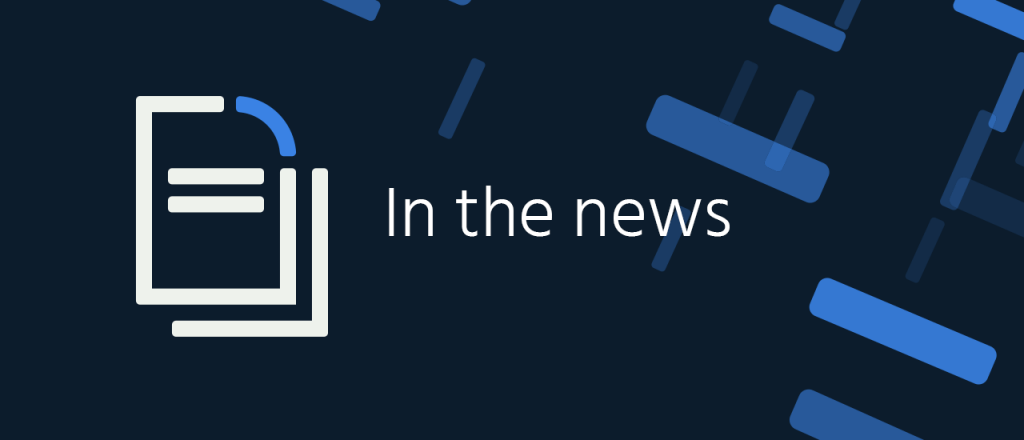
More moderation: Facebook is looking at new ways to moderate posts on its site to make it more difficult for election disinformation to spread, the New York Times reports. Facebook is looking at adding more “friction,” such as an additional click or two, before users can share posts, according to insiders in the company. The new measures were expected shortly.
Millions without access: About 63 percent of rural residents in Latin America and the Caribbean – 77 million people – have little or no access to Internet services, according to a study by the Inter-American Development Bank and Microsoft, Nearshore Americas says. By comparison, about 71 percent of urban residents in the region have access to the Internet.
Bracing for regulation: Residents of Nigeria are expecting the government to move to regulate social media after recent protests, Quartz Africa on Yahoo reports. “We must regulate social media in a manner that it does not become a purveyor of fake news and hate speech,” Nigeria’s minister of information Lai Mohammed said recently. “We will not fold our arms to allow purveyors of fake news and hate speech to use the social media to destabilize the country.”
Right to repair: Campaigners across Continue reading

Net-á-porter: The South African Chapter of the Internet Society has been promoting an “Internet-in-a-box” initiative using an SD card to configure an inexpensive Raspberry Pi device. Interested people can configure an SD card or even order a pre-loaded SD card.
Taxing the ‘Net: The Mexico Chapter has gone on record as opposing a digital services tax proposed by the Mexican government. “If this initiative is approved, which would have a negative impact on free access to content and information by citizens, [and] we could find ourselves with a potential instrument of discrimination and censorship,” the Chapter said. The tax on foreign digital services would be 16 percent.
Moving governance forward: Pacific Islands Chapter member Swaran Ravindra noted that cybersecurity and digital inclusion were big topics at the recent Asia Pacific Regional Internet Governance Forum 2020. “Disruptive technologies … have enormous benefits for the Pacific region at large, but we cannot ignore the need for our people to be completely cognizant of the cybersecurity issues which we are being exposed to,” she wrote. “Fiji struggles with cyberbullying, suicide, mental health issues, fraud, and crime [that] technology may have been a part of, either intentionally or unintentionally. In order to leverage technology Continue reading
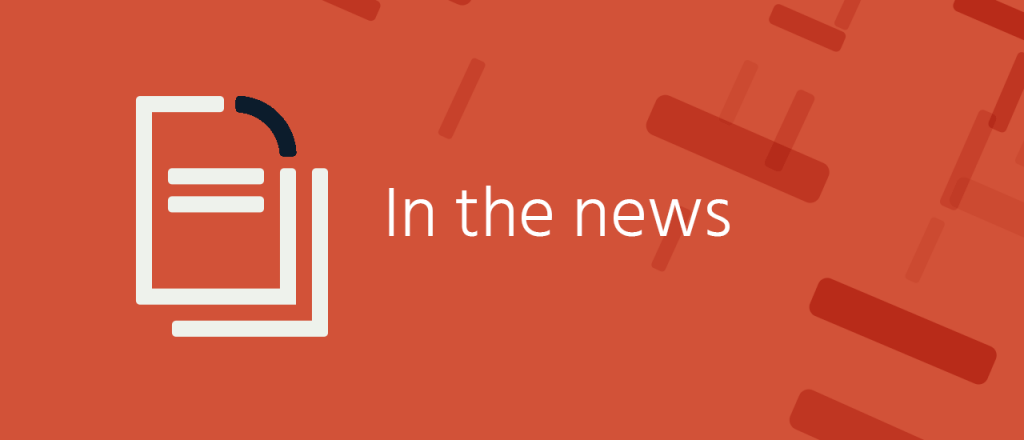
Getting hit from both sides: Executives from Google, Twitter, and Facebook faced criticism from all sides when testifying in the U.S. Senate recently, the Washington Post reports. Democratic senators told the companies they should do a better job with moderating their sites for fake news and conspiracy theories, while Republicans called on the companies to take a more hands-off role with political speech.
Your money, or else: A wave of ransomware attacks have hit nearly two dozen hospitals and healthcare organizations in recent weeks, Wired.com reports. Even after those attacks, the U.S. Cybersecurity and Infrastructure Security Agency, Federal Bureau of Investigation, and Department of Health and Human Services warned that more may be coming, with an “increased and imminent cybercrime threat” to hospitals and healthcare providers.
Safer Zooming: Videoconferencing provider Zoom has added encryption to free accounts, although the new protections come with a catch, TechCrunch says. With end-to-end encryption enabled for every user joining the call, some other features won’t be available. Users on encrypted calls won’t be able to use features like cloud recording and live transcription, and they won’t be able to chat one on one. Also, the encryption feature will only work with the Continue reading

The COVID-19 pandemic has not only caused more than one million deaths worldwide, but it is also accelerating a decline in Internet freedoms across the globe, according to a new report from Freedom House.
The past year has been “especially dismal” for Internet Freedom, according to the Freedom on the Net 2020 report, sponsored by the Internet Society. Political leaders have used the pandemic as an excuse to limit access to information and to roll out new surveillance measures, the report says.
At the same time, a slow-motion splintering of the Internet has turned into an “all-out race toward ‘cyber sovereignty,’ with each government imposing its own internet regulations in a manner that restricts the flow of information across national borders,” the report says. Authorities in several countries, including the U.S., China, Russia, Brazil, and Turkey have erected new digital borders.
As a result, Internet freedoms have declined for the 10th consecutive year, says the report, which tracks Internet freedom in 65 countries, covering 87 percent of the world’s Internet users. From May 2019 to June 2020, the report found Internet freedom scores dropping in 26 countries, with 22 registering net gains.
The largest declines occurred in Continue reading

Searching for a monopoly: The U.S. Department of Justice has filed an antitrust lawsuit against Google, accusing the tech giant of illegal monopolies in search and search advertising, CNet reports. The DOJ has accused Google of acting as an Internet “gatekeeper.” Google disputed the allegations, saying people use its services because they choose to, not because they have to.
New networking: The Lower Brule Sioux Tribe in central South Dakota has advanced a plan to provide computers and high-speed Internet connections to all students and teachers during the COVID-19 pandemic, the Argus Leader says. Since early June, the tribe has been working on a plan to build its own wireless Internet network, intended to cover the 207-square-mile Lower Brule reservation. The new network is the first-of-its-kind in South Dakota, and it began limited operations in July.
A bumpy relaunch: The French government’s relaunch of its COVID-19 tracing app, called, “TousAntiCovid,” hit some snags when it was downloaded more than 500,000 times in the hours following its launch, the BBC says. The traffic led to some stability problems, with some people unable to launch the app.
DNS vs. crime: Securing the Internet’s domain name system is a crucial step in Continue reading

Here we go again: Seven countries, including the U.S., U.K., Japan, and India, are again pushing tech companies to provide encryption backdoors for law enforcement, The Verge reports. The new international statement says encryption poses “significant challenges to public safety.” The U.S. and allies have long pushed for backdoors, even as security advocates have warned that criminals will find ways to exploit holes in encryption.
ISPs protest: ISPs in Dhaka, Bangladesh, are threatening to shut down service for three hours a day over a dispute on overhead wire replacement, Dhaka Tribune reports. The city is planning to move the wires underground, but ISPs are concerned about potential problems during the switch. Threatening a blackout to protest potential blackouts seems counterproductive.
Decency police: The government of Pakistan has banned short video app TikTok over “immoral and indecent” content, Al Jazeera says. It’s unclear what TikTok content the Pakistan Telecommunication Authority found offensive. A kickboxer in the country, hoping to market his training services on TikTok, challenged the ban, however, Reuters reports. “If TikTok can be banned even though it has millions of videos because of a few offensive ones, why can’t the whole internet be shut Continue reading

From the community: The Haiti Chapter of the Internet Society recently posted a video advocating for more community networks in the country. Internet access is a necessity during the COVID-19 health emergency, the Chapter said. Still, there is a challenge of providing access in rural areas of the country. The Chapter wants a plan that allows communities to build their own networks “where it is not yet economically viable for Internet service providers” to offer broadband service.
Going to school: The Kyrgyzstan Chapter has provided an update about its very active ilimBox project, which provides an Internet-in-a-box service to schools in the country. In late August, the ilimBox team, with the financial support of the European Union, installed 22 ilimBox devices in the border villages of Batken region.
Don’t split the Internet: The Greater Washington, D.C., Chapter has voiced opposition to U.S. President Donald Trump’s plans to ban Chinese apps TikTok and WeChat from the U.S. The Chapter is “against breaking the Internet,” it wrote. The proposed ban “undermines the foundations of the Internet.” The Chapter’s statement echoes the position of the Internet Society as a whole.
Safety first: The St. Vincent and the Grenadines Continue reading

Break ‘em up: A report released by the Democrats on the U.S. House of Representatives Judiciary Committee has accused Amazon, Apple, Facebook, and Google of abusing their monopoly power and has called the four companies to effectively be broken up, the New York Times reports. The report calls the four companies “the kinds of monopolies we last saw in the era of oil barons and railroad tycoons.”
India wants in: Meanwhile, Google is reportedly facing an antitrust investigation in India for allegedly abusing its Android operating system’s position in the smart television market, The Economic Times of India says. This is the fourth major antitrust case Google has faced in the huge India market.
Hackers for hire: A mercenary hacking group is operating throughout the Middle East, with Saudi diplomats, Sikh separatists, and Indian business executives among those being targeted, Al Jazeera reports. The diversity of the group Bahamut’s activities makes it appear that it’s not working for a single group or nation, researchers say.
Ready for takeoff: SpaceX’s space-based Internet service is nearly ready for use after the company’s latest launches of Starlink satellites, CEO Elon Musk says. SpaceX has delivered 60 additional satellites into low-Earth orbit this Continue reading

No deal: A U.S. judge has temporarily blocked President Donald Trump’s order to ban Chinese app TikTok from the Apple and Android app stores, CNBC reports. Trump has argued that the app is a security risk. Oracle and Walmart are in talks to buy a piece of TikTok’s U.S. operations as a way to appease Trump, though it appears that there’s disagreement with Chinese owner ByteDance over the outlines of a deal.
Breaking up is hard to do: The Hill has commentary about Trump’s attempt to ban TikTok and WeChat, another Chinese app, saying these are “only the most recent signs that the once open, global internet is slowly being replaced by 200, nationally-controlled, separate internets.” Trump’s efforts follow a long-term Chinese government drive to create a walled off Internet inside its own borders.
It’s nice to share: The European Union is preparing new regulations that would require large tech companies to share their customer data files with smaller competitors, Euronews says. An early draft of the Digital Services Act says companies like Amazon and Google “shall not use data collected on the platform … for [their] own commercial activities … unless they [make it] accessible to business users active Continue reading

Too slow: Some state lawmakers in New Mexico are having trouble attending virtual committee meetings because of poor Internet service, Government Technology reports. State Rep. Micaela Lara Cadena has to share a slow connection with her children, who are attending virtual school. “The only Internet I can get comes through a phone line,” she said. “There’s no broadband, no fiber optics.”
Kicked out: Facebook and Twitter have removed several hundred fake accounts they said are linked to Russian military intelligence and other Kremlin-backed actors previously tied to interference in U.S. politics, NPR reports. The accounts were not tied to interference in the 2020 U.S. election, Facebook said, but they were linked to past attempts.
Investigating speech: In other Facebook news, the social media company is facing an investigation by a New Delhi government committee over its alleged role in religious riots earlier this year, CNN says. This is the second time in recent weeks that Facebook has been investigated for being used to spread controversial speech. Earlier, Facebook allowed a politician from India’s ruling party to remain on its platform even though his anti-Muslim posts appeared to violate rules against hate speech.
Targeting the dark web: One Continue reading

Turning plastic into access: Students in a Jakarta, Indonesia, neighborhood are collecting discarded plastic and trading it for access at a WiFi station that sells the plastic waste, the World Economic Forum website says. The owner of the WiFi station uses the profits from selling the plastic to purchase access for small groups of students who need Internet access during continuing COVID-19 lockdowns.
No access here: About 54 percent of households in rural Bangladesh lack Internet access, according to a new survey featured at The Daily Star. Nearly six in 10 don’t have access to a smart phone. The survey also found that about eight in 10 rural households have very limited digital skills.
Trump vs. TikTok: U.S. President Donald Trump’s administration has moved to ban Chinese apps TikTok and WeChat as of 20 September, Reuters reported. The U.S. Department of Commerce was planning to issue an order on Friday that would prohibit app stores available in the U.S. from offering the two apps. TikTok owner ByteDance was still exploring a sale of the video-sharing app to U.S. companies.
Rockets on boats: SpaceX is planning to test its proposed Starlink satellite Internet network by using a Continue reading

Library access: The Kyrgyzstan Chapter of the Internet Society has started work on version 2.0 of its ilimBox project, an online educational platform for teachers and students. The ilimBox device, now powered by the Raspberry Pi 4, will include new educational videos, audio, and text resources. IlimBox is a digital library for schools and public libraries, containing Wikipedia in Kyrgyz, Russian, and English, the Khan Academy electronic library in English, and thousands of video lessons, audio, and electronic books. All these digital training materials can be used offline, with users not needing immediate access to the Internet, although the library also connects to services through WiFi. As of last November, about 100 schools in Kyrgyzstan had installed ilimBox.
Building a better network: The Ghana Chapter has a post on efforts to improve the wireless network at Ho Technical University, and the author credited training from the Internet Society on community networks in helping him sort out problems with the network there. The campus network “had a lot of issues such rogue DHCP servers and IP address conflicts,” the author noted.
Algorithmic privacy: The Commission for the Protection of Privacy in Canada has given a grant to the Quebec Chapter Continue reading

Hackers vs. the election: Microsoft has warned that hackers from Russia, China, and Iran are targeting U.S. election systems, The Hill reports. The tech giant is seeing increasing efforts to hack into the Donald Trump and Joe Biden presidential campaigns. A Russian hacking group called Strontium has targeted more than 200 organizations, political campaigns, and parties over the past year, the company said.
Fighting disinformation: The government of India is calling for greater international cooperation among countries and tech companies to combat disinformation and doctored videos related to the COVID-19 pandemic, India Times reports. “The pandemic has demonstrated the existential dilemma of an information society,” Counsellor Paulomi Tripathi said at the United Nations. “We have been exposed to misinformation and disinformation campaigns which have put lives and livelihoods of millions at risk, divided communities with fake news and doctored videos and undermined the trust in public authorities to tackle the disease.”
Cutting red tape: Nigeria is looking to waive fees for laying fiber optic cables on federal highways as a way to expand Internet access in the country, Quartz Africa reports. Officials hope the waiver will help the country meet targets in its national broadband plan, which aims for Continue reading